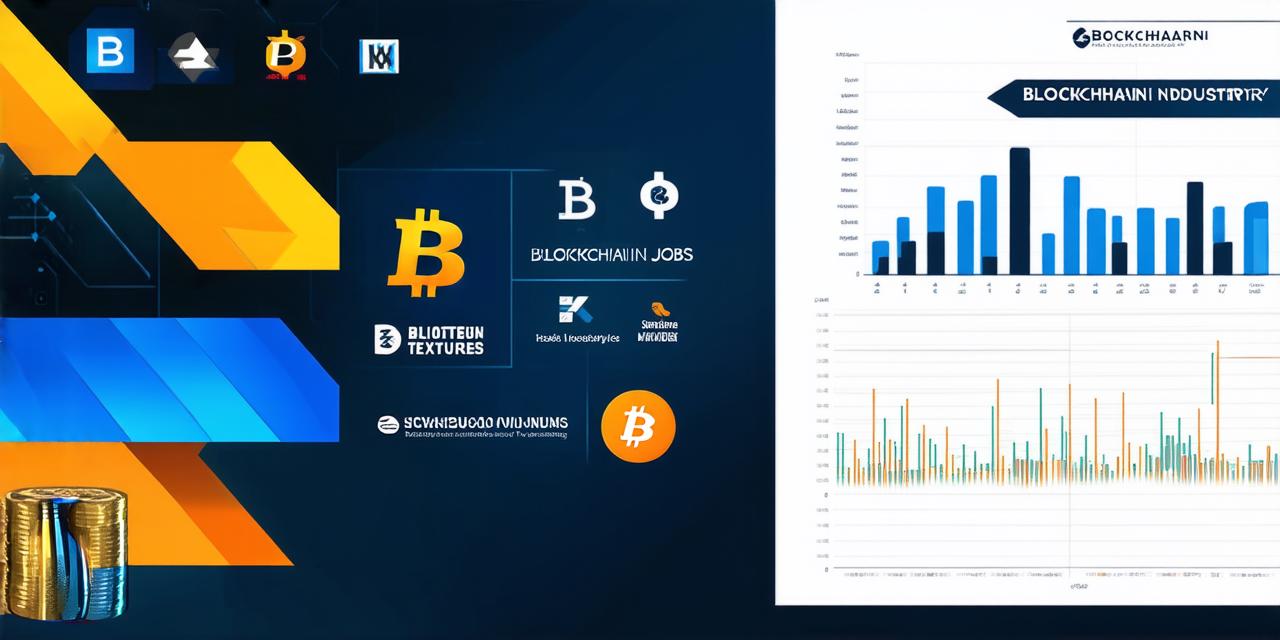What jobs are there in blockchain
Blockchain: A Gold Rush of New Job Opportunities
Blockchain technology has been gaining traction since its inception and is rapidly transforming multiple industries. From finance to healthcare, blockchain-based solutions are being implemented worldwide to enhance security, transparency, and efficiency.
The Blockchain Job Market: A Gold Rush Awaiting
According to a report by LinkedIn, the blockchain industry is experiencing exponential growth, with over 140,000 professionals currently working in the sector worldwide. The number of job postings related to blockchain technology has increased by over 2,500% since 2017, indicating that this field is a gold rush for skilled professionals.
Software Development Roles
Blockchain-based solutions require specialized software development skills to design, develop, and maintain these complex systems. Some of the popular software development roles in the blockchain industry include:

- Smart Contract Developer: Smart contracts are self-executing contracts with the terms of the agreement between buyer and seller being directly written into lines of code. Smart contract developers are responsible for designing, developing, and testing smart contracts on various blockchain platforms. They work closely with other developers, stakeholders, and legal experts to ensure that these contracts are secure and comply with relevant regulations.
- Blockchain Developer: Blockchain developers are responsible for building and maintaining blockchain-based solutions. They work with various technologies, such as Ethereum, Hyperledger, and Corda, to design, develop, and deploy blockchain applications. They also ensure the security and scalability of these systems, addressing any issues that arise during operation.
- Full Stack Developer: Full stack developers possess a broad range of skills, including front-end and back-end development, database management, and software testing. They work on both client-facing and internal applications, integrating blockchain technology where appropriate to enhance security and transparency.
Legal Roles
Blockchain technology has the potential to disrupt various industries, leading to legal implications that need to be addressed. Some of the popular legal roles in the blockchain industry include:
- Blockchain Legal Counsel: Blockchain legal counsel provide legal advice and representation to clients in the blockchain industry. They work closely with other professionals, such as software developers and compliance experts, to ensure that their clients are following relevant regulations and best practices. They also help clients navigate the complex legal landscape of blockchain technology, addressing issues related to intellectual property, data protection, and contract law.
- Compliance Officer: Compliance officers are responsible for ensuring that their organization complies with all relevant regulations and industry standards. In the blockchain industry, compliance officers work closely with legal counsel to ensure that their organization’s blockchain-based solutions comply with anti-money laundering (AML) and know-your-customer (KYC) regulations, as well as data protection laws like GDPR.
- Regulatory Analyst: Regulatory analysts work closely with legal and compliance teams to monitor changes in regulatory landscapes and their impact on the blockchain industry. They research and analyze legal and policy developments related to blockchain technology, providing insights into potential risks and opportunities for organizations operating in this space.
Financial Roles
Blockchain technology has the potential to disrupt the financial industry, leading to new roles focused on analyzing and managing financial implications of blockchain-based solutions. Some of the popular financial roles in the blockchain industry include:
- Blockchain Financial Analyst: Blockchain financial analysts work closely with other professionals, such as software developers and legal experts, to analyze the financial implications of blockchain-based solutions. They research and analyze various aspects of blockchain technology, including its potential impact on financial markets, risk management, and investment opportunities.
- Crypto Trader: Crypto traders specialize in buying and selling cryptocurrencies, working closely with other professionals to identify profitable trading opportunities. They work with financial analysis tools and market data to make informed decisions about when to buy or sell various cryptocurrencies.
- Investment Banker: Investment bankers work with clients to raise capital through the sale of securities, such as stocks and bonds. In the blockchain industry, investment bankers work closely with other professionals to identify potential investment opportunities in blockchain-based solutions, analyzing their financial implications and helping clients make informed decisions about where to invest.



